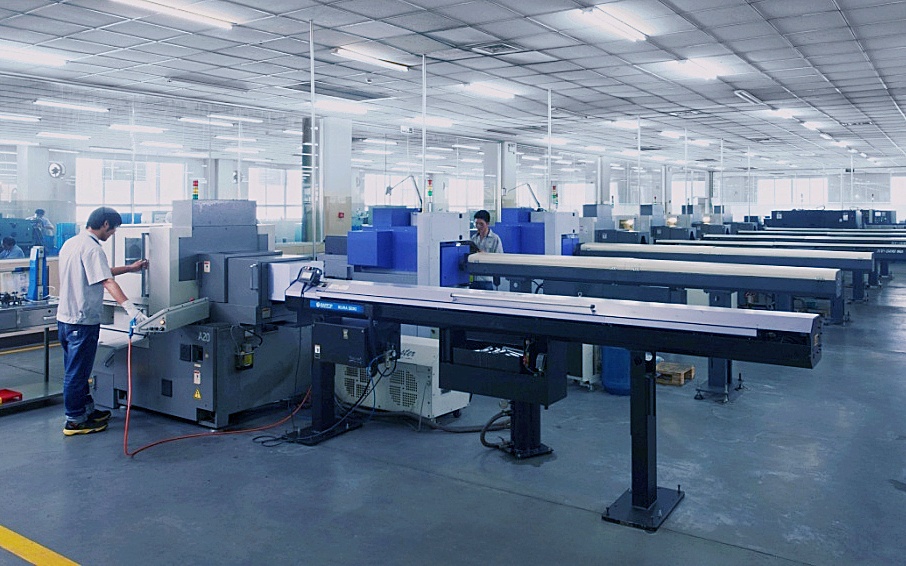Overview:
CNC (Computer Numerical Control) and Swiss Lathe Machining are sophisticated manufacturing techniques pivotal in the production of precise components with exceptional accuracy and repeatability. These techniques leverage computer-controlled machinery to shape raw materials into intricate and customized parts used across industries.
CNC Machining:
Process and Equipment:
- Computer-Aided Design (CAD) and Computer-Aided Manufacturing (CAM): Designs are translated into machine-readable code (G-code) to guide CNC machines.
- CNC Machines: Employ various tools (mills, lathes, grinders) to precisely cut and shape materials including metals, plastics, and composites.
Precision and Tolerances:
- Accuracy: CNC machining achieves remarkable precision, often within micrometers (μm) or even smaller tolerances, depending on machine capabilities.
- Industry Standards: Conforming to ISO 2768 for general tolerances and specific standards set by industries (e.g., ASME Y14.5 for geometric dimensioning and tolerancing).
Materials and Applications:
- Diverse Materials: CNC machining caters to a wide range of materials, from aluminum and steel to exotic alloys and engineered plastics.
- Applications: Used in aerospace, automotive, medical, and various industries for manufacturing intricate components like gears, housings, and precision parts.
Swiss Lathe Machining:
Process and Characteristics:
- Sliding Headstock: A defining feature of Swiss lathes, allowing machining close to the guide bushing for enhanced precision.
- Single Set-Up: Supports efficient machining of complex and slender parts in a single operation, reducing production time.
Precision and Tolerances:
- Micro-Machining Capabilities: Swiss lathes excel in micro-machining, achieving high precision within incredibly tight tolerances.
- Surface Finish: Produces fine surface finishes, often meeting Ra values of 0.4 μm or better.
Materials and Applications:
- Small and Complex Parts: Ideal for producing miniature and intricate components like pins, screws, and medical implants.
- Materials Compatibility: Machining materials including titanium, stainless steel, brass, and plastics for various high-precision applications.
Industry Standards and Certifications:
Quality Assurance:
- ISO Standards: Compliance with ISO 9001 for quality management systems ensuring consistency and adherence to specifications.
- AS9100: Specific to aerospace, ensuring compliance with stringent industry requirements for safety and quality.
Inspection and Verification:
- In-Process Inspection: Employing advanced metrology tools such as CMMs (Coordinate Measuring Machines) to validate dimensions during production.
- Final Inspection: Ensuring compliance with specified tolerances and dimensions before component release.
CNC and Swiss Lathe Machining stand as pinnacle techniques in precision manufacturing, achieving remarkable accuracy and producing intricate components meeting stringent industry standards. Their application spans various industries, contributing to the production of vital and complex components essential in modern engineering.

